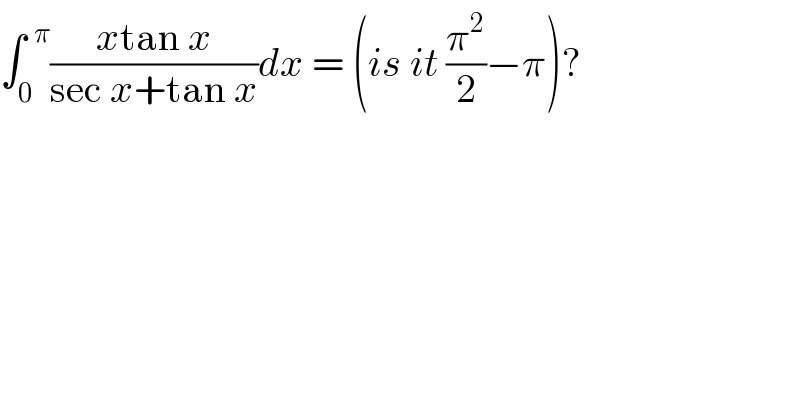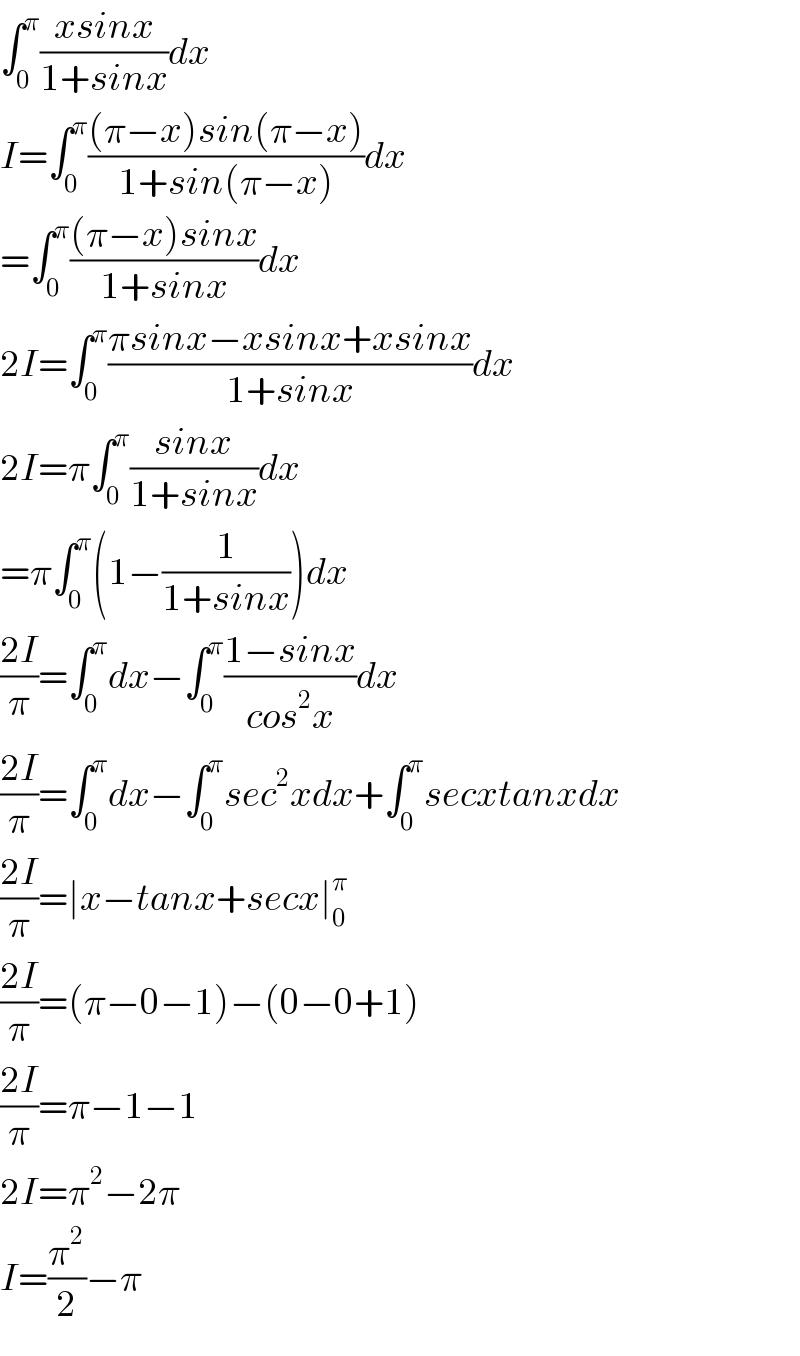Question Number 55930 by ajfour last updated on 06/Mar/19

Answered by tanmay.chaudhury50@gmail.com last updated on 06/Mar/19

Commented by ajfour last updated on 06/Mar/19

Commented by tanmay.chaudhury50@gmail.com last updated on 06/Mar/19

Commented by maxmathsup by imad last updated on 09/Mar/19
![I =∫_0 ^π ((x(1+sinx−1))/(1+sinx))dx =∫_0 ^π xdx −∫_0 ^π (x/(1+sinx)) dx but ∫_0 ^π xdx =[(x^2 /2)]_0 ^π =(π^2 /2) and ∫_0 ^π (x/(1+sinx)) dx =_(tan((x/2))=t) ∫_0 ^∞ ((2arctan(t))/(1+((2t)/(1+t^2 )))) ((2dt)/(1+t^2 )) =4 ∫_0 ^∞ ((arctan(t))/(1+t^2 +2t)) dt =4 ∫_0 ^∞ ((arctan(t))/((t+1)^2 )) dt ( and by parts) =4{ [−((arctan(t))/(t+1))]_0 ^∞ +∫_0 ^∞ (1/((t+1)(t^2 +1)))dt} =4 ∫_0 ^∞ (dt/((t+1)(t^2 +1))) dt let decompose F(t) =(1/((t+1)(t^2 +1))) ⇒ F(t) =(a/(t+1)) +((bt +c)/(t^2 +1)) a =lim_(t→−1) (t+1)F(t) = (1/2) lim_(t→+∞) tF(t) = 0 =a+b ⇒b =−a =−(1/2) ⇒F(t)=(1/(2(t+1))) +((−(t/2)+c)/(t^2 +1)) F(0) =1 =(1/2) +c ⇒c=(1/2) ⇒F(t)=(1/(2(t+1))) −(1/2) ((t−1)/(t^2 +1)) ⇒ ∫_0 ^∞ F(t)dt =(1/2)[ln∣t+1∣−(1/2)ln(t^2 +1)]_0 ^(+∞) +(1/2)[arctan(t)]_0 ^(+∞) =(1/2)[ln∣((t+1)/( (√(t^2 +1))))∣]_0 ^∞ +(π/4) =(π/4) ⇒ I =(π^2 /2) −4((π/4)) =(π^2 /2)−π .](https://www.tinkutara.com/question/Q56073.png)
Answered by MJS last updated on 06/Mar/19
![∫((xtan x)/(sec x +tan x))dx=∫((xsin x)/(1+sin x))dx=∫xdx−∫(x/(1+sin x))dx= =(x^2 /2)−∫(x/(1+sin x))dx= ∫(x/(1+sin x))dx= [∫u′v=uv−∫uv′; u′=(1/(1+sin x)); v=x u=−((cos x)/(1+sin x)); v′=1] =−((xcos x)/(1+sin x))+∫((cos x)/(1+sin x))dx= =−((xcos x)/(1+sin x))+ln (1+sin x) =(x^2 /2)+((xcos x)/(1+sin x))−ln (1+sin x) +C ⇒ your value is true](https://www.tinkutara.com/question/Q55938.png)
Commented by ajfour last updated on 06/Mar/19

